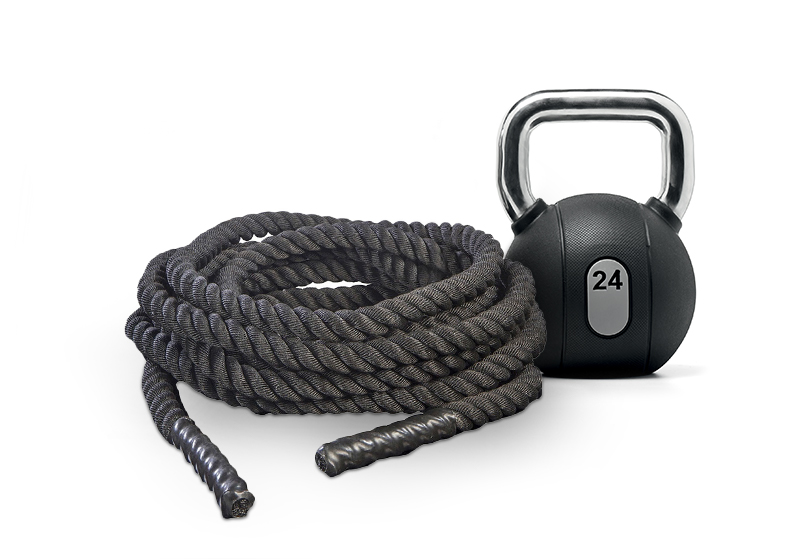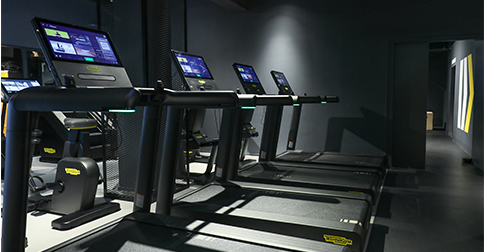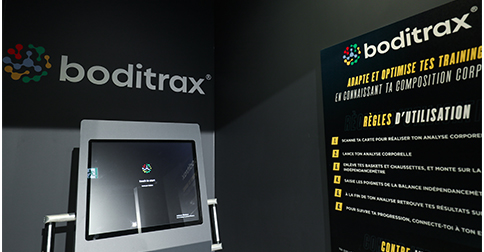Découvre le club Fitness Park Villejuif situé dans le Centre Commercial Carrefour Villejuif7. Réparti sur plus de 670m², le club t’offre un large choix d’activités et d’équipements Technogym pour t’entraîner à la perfection. Que ton objectif soit de te muscler, mincir ou te remettre en forme, Fitness Park t’accompagne dans ta réussite personnelle. INFORMATIONS PRATIQUES SERVICES DU CLUB LES POINTS FORTS *En supplément Le club de sport Fitness Park Villejuif t’accueille sur 670m2 d’espace de pratique : musculation, cardio, cross-training, powerlifting. Retrouve machines et équipements Technogym, disponibles en libre accès 7J/7 - de 6h à 23h ainsi que des coachs sportifs disponibles pour tous tes entraînements. Retrouve un espace de 200m² pour tes séances d’entraînement. Des exercices de base aux plus complexes, la salle est équipée de machines de musculation dernière génération Technogym et Hammer Strength pour maximiser tes performances lors de tes séances. Nos machines de fitness à charges guidées te permettent d’évoluer facilement pour atteindre tes objectifs. Progresse avec une préparation physique adaptée à tes objectifs, dans un espace conçu parfaitement pour tes entraînements. Retrouve des équipements de musculation à charges libres performants pour développer ta masse musculaire. Travaille l’ensemble du corps et améliore ta condition physique générale dans l’espace dédié aux entraînements cardio-training. Entraîne-toi pour te remettre en forme, dépenser un maximum de calories, perdre du poids et développer ton endurance. Nous mettons à disposition les meilleurs équipements de fitness et de cardio Technogym pour atteindre tous tes objectifs fitness : rameurs, vélos elliptiques, simulateurs d’escaliers ou encore tapis de course. Enchaîne pull-up, push-up et dead-lift à force de détermination et d'abnégation. Le club met à disposition et en libre accès, un espace pensé pour pratiquer le cross-training en illimité. Retrouve barres de traction, kettlebells, rack à squat Eleiko, TRX, box jump, wall-balls et powerbag pour des séances de cross-training intenses et variées. Mélangeant musculation, haltérophilie et mouvement de gymnastique, le cross-training ne t’offre pas moins de 50 exercices différents pour brûler des calories et développer tes muscles. C’est la discipline par excellence pour une préparation musculaire et cardio à haute intensité. Quel que soit ton niveau, le cross-training est accessible à tous. Adapte tes séances d'entraînement selon tes objectifs. Nous proposons dans tous les clubs Fitness Park un espace Musculation, Cardio & Cross-Training afin que tu puisses venir t'entraîner dans les meilleurs conditions. Fitness Park te propose plusieurs offres au choix dès 19€/ 4 semaines* : Avec ou Sans Engagement avec l'offre classique, Access + et Ultimate et l'offre Jeunes. Découvre-les ! SALLE DE SPORT Villejuif
Musculation, Cross-Training, Powerlifting & Cardio-Training
06:00 - 23:00
09:00 - 22:00Fitness Park Villejuif
Club de sport, fitness & remise en forme
Climatisation
Douche individuelle
Produit désinfectant
Wifi gratuit
Distributeur automatique
Musculation
Cardio training
Biking
Espace Abdos Stretching
Cours collectifs coachés
Cours vidéo
Cross training
Hydromassage*
Boditrax*
Water Station
Plateforme Oscillante Sismo*
Equipements haut de gamme
Service de qualité
Libre accès dans tout le réseau
Services et expérience Ultimate
ACTIVITÉS
Espace Musculation
Conçu pour développer ta force

Espace cardio-training
Idéal pour te remettre en forme
Espace Cours Collectifs
Plus de 160 cours disponibles
Espace Cross-Training
Repousse tes limites
Questions &
RéponsesQuelles sont les activités proposées dans les clubs Fitness Park ?
Quelles sont les offres proposées dans les salles de sport Fitness Park ?
Pourquoi s’entraîner
chez nous ?
Fitness Park, la marque de fitness préférée des Français*
Un réseau de plus de 260 salles en France et à l'étranger
Espaces Cardio-Training, Musculation libre et guidée
Une communauté de passionnés !
Cage de Cross-Training et accessoires complets
Matériel haut de gamme et connecté
Cours collectifs vidéo exclusifs
Wifi gratuit
* Offre non cumulable valable pour toute souscription à un abonnement classic avec engagement d'un an soit 13 périodes de 4 semaines, hors l'adhésion de 30€ à l'inscription et la participation au renouvellement matériel de 9€ à régler une seule fois.
 Offre spéciale : Les 4 premières semaines à 19€
Offre spéciale : Les 4 premières semaines à 19€
















